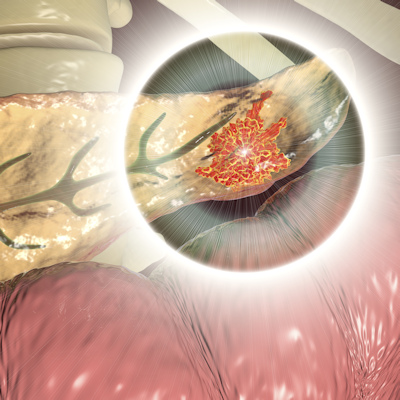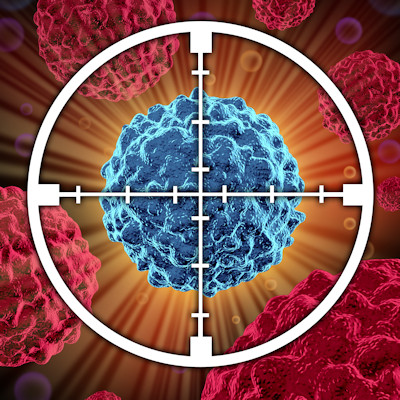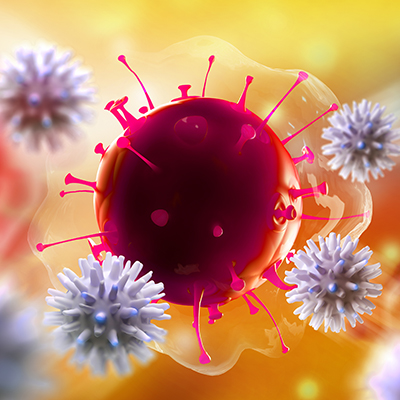March 22, 2023 -- Researchers have discovered how immature neutrophils — white blood cells that are an important part of the immune system — are hijacked by pancreatic cancers to drive treatment resistance. The study, published Wednesday in Cancer Discovery, may facilitate new pancreatic cancer treatment avenues.
Pancreatic ductal adenocarcinoma, one of the deadliest and most treatment-resistant cancers, is on the rise. Pancreatic tumors are notorious for silently growing before being discovered, often incidentally, during abdominal scans. If current trajectories continue, pancreatic cancer may become the second-leading cause of cancer death in the U.S. within the next few years. While the cause of this cancer's increased prevalence is unknown, the researchers sought to build on previous studies suggesting that inflammation plays a role.
The team leveraged recent technologies, including single-cell biology, where they used spatial techniques to better understand cellular relationships in the pancreatic tumor microenvironment. High-dimensional sequencing helped them understand how cancer cells and neutrophils orchestrate this crosstalk. They conducted mechanistic and translational studies using specific drugs to overcome chemotherapy resistance in cellular and animal models, as well as in blood samples and tissue specimens made available by hospital patients.
They discovered a previously unrecognized signaling circuit in pancreatic cancer that instigates immunosuppression and tumor-promoting inflammation in the pancreatic tumor microenvironment. Their results implicated the immunosuppressive signaling from immature neutrophils -- the earliest sentinels in developing pancreatic cancer -- in this process. Specifically, the researchers found the central regulator of pancreatic cancer treatment resistance was signaling by neutrophil-derived tumor necrosis factor (TNF), a substance in the body that causes inflammation.
The research adds to scientists' knowledge of pancreatic cancer by connecting the molecular dots between high-risk tumor genotypes that exist in pancreatic cancer and the specific molecular and cellular culprits -- the immature neutrophils --involved in creating immunosuppressive networks in the pancreatic tumor microenvironment. The team created a road map to target each element of these molecular dots in an attempt to thwart the inflammatory process and overcome therapeutic resistance.
The team is currently collaborating with other groups across the country to develop a novel nanoengineering platform to target neutrophils without killing them, so they can target the tolerogenic, or immunosuppressive, signaling mechanisms within the neutrophils. Clinical trials will attempt to target the immunosuppressive pathway from numerous angles.
"This is the first description of how cancer cells 'talk' with neutrophils and how neutrophils are major actors in this immunosuppressive inflammatory drama in the pancreatic tumor microenvironment," Dr. Jashodeep Datta, senior author and associate director of translational research at the Sylvester Pancreatic Cancer Research Institute, said in a statement.
"The research will pave the way to the ultimate goal of clinical studies, so that our findings can be directly translated to improve patient care," added Dr. Nipun Merchant, co-author and the Sylvester Pancreatic Cancer Research Institute's founding director.
Copyright © 2023 scienceboard.net











